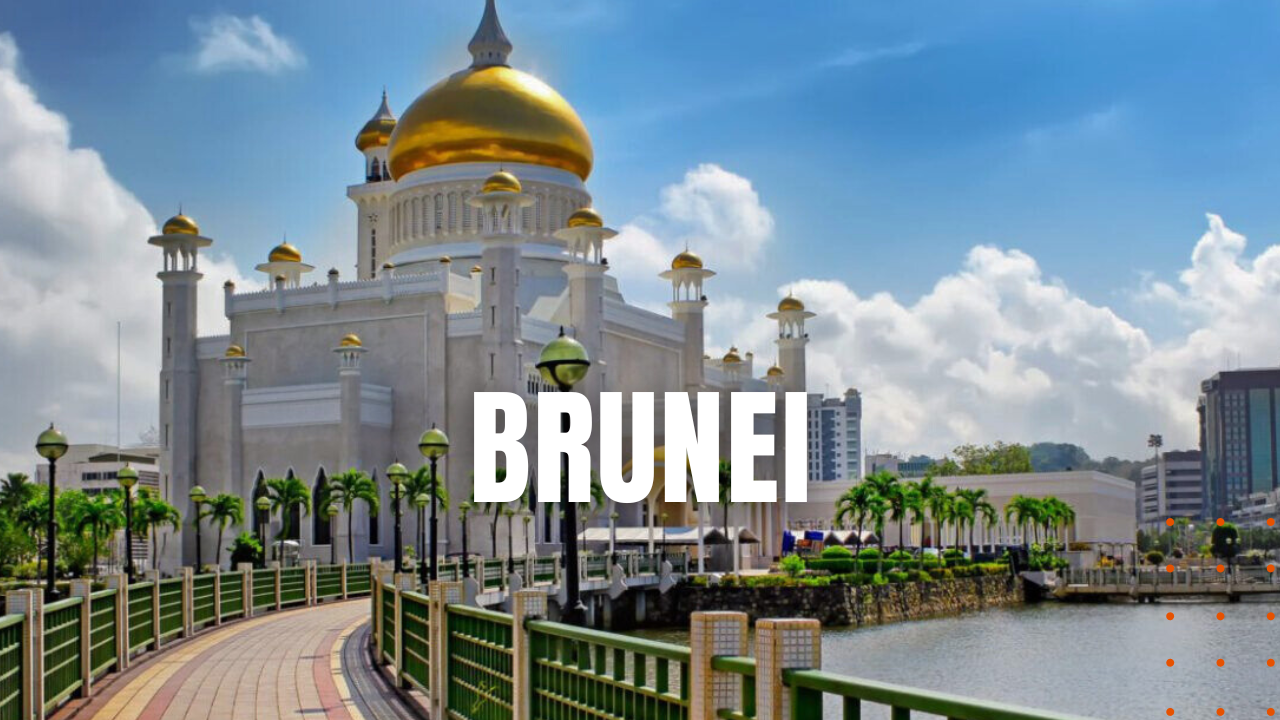Where in the World is Brunei

Occupying one percent of the island of Borneo—the third largest island in the world behind Greenland and New Guinea—Brunei Darussalam or simply Brunei is surrounded by the Malaysian state of Sarawak to the east, west and south, while her 100-mile low plains coastline faces the South China Sea to the north. With a total land area of 2,228 square miles—about the size of the America’s second smallest state of Delaware—Brunei is divided into the four districts, including Brunei/Muara, Tutong, Belait and Temburong. Of the nation’s 449,000 citizens, nearly 78 percent live in urban areas, including 180,000 residents in the nation’s oil rich northeastern capital city of Bandar Seri Begawan, 31,000 in the far northwestern coastal city of Kuala Belait and some 30,000 Bruneians in the northwestern coastal city of Seria.
Kapong Living
The rest live mostly in villages along Brunei’s major rivers, in traditional fishing villages known as kapongs. With over 70% of the nation covered by dense tropical rain forests, the less than assessable region can be reached mainly by riverboats atop Brunei’s five major rivers—the Sungai Limband, Belait, Tutong, Temburong and Brunei—leaving less than one percent of the nation’s land suitable for agriculture. With hilly lowlands in the west and mountains to the east and south, Brunei’s highest elevation can be found at Bukit Pagon, which stands 6,070 feet above sea level. Located 5 degrees north of the equator in an area known as the Doldrums, Brunei is known for its year-round sunny yet hot and humid climate, ranging from 90 degrees Fahrenheit during the day to the 70s at night. With humidity levels generally between 70 to 90 percent, Bruneians rely heavily on air conditioned buildings to shield them from the heat. In a nation made up of nearly 73 percent Malay, including indigenous Malay groups such as the Belait, Kedayan, Dusun, Murut and Bisaya, Brunei also includes minority ethnicities such as Chinese, Indian and Filipino.
Muslim Majority
From a religious standpoint, the majority of Bruneians consider themselves Sunni Muslim, while minority religious groups include Christians, Buddhists, Taoist, Hindus and animists. Boasting an annual GDP of $16.68 billion, Bruneians enjoy one of the highest standards of living in the world, with a per capita income of around $83,000 a year. In a nation experiencing dwindling oil reserves—dropping from 220,000 barrels in 2006 to 90,000 barrels in 2023—the Sultan of Brunei in harmony with government officials have steered the nation towards broader economic diversification, including tourism, aquaculture, emerging technologies and pharmaceutical manufacturing, making the sovereign nation of Brunei, a small yet thriving country in Southeast Asia.
